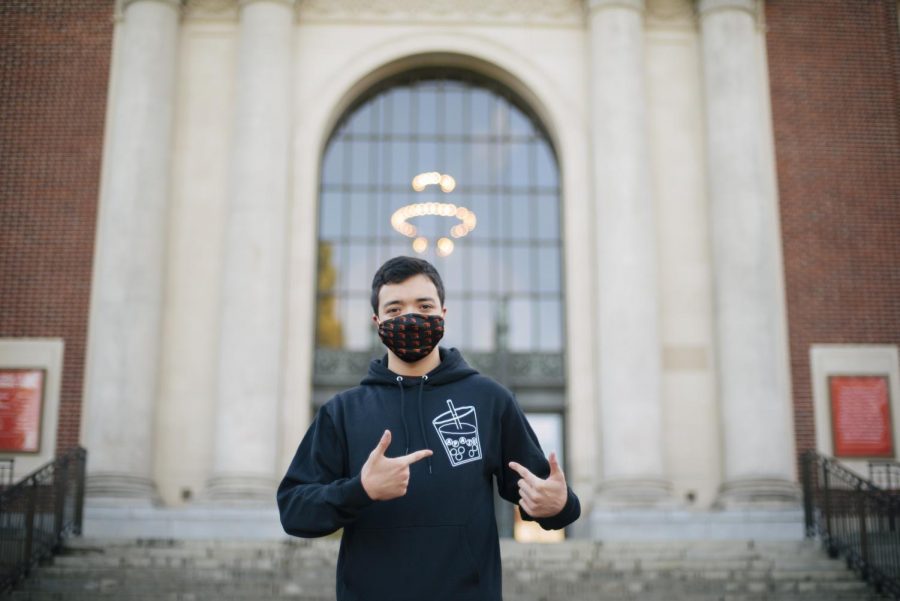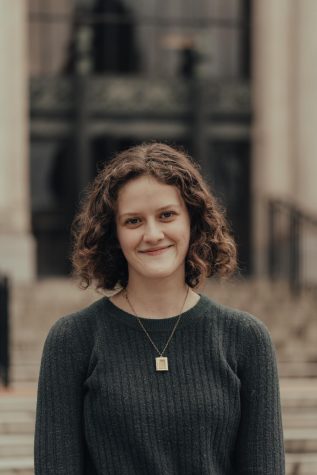OSU clubs affected by COVID-19, ‘feel fatigued by meeting and doing activities online’
December 9, 2020
Oregon State University students have felt the effects of courses being taught remotely due to COVID-19, but classes are not the only on-campus activity affected.
OSU offers a multitude of clubs and organizations for students to join, and as a result, in pre-pandemic times, school-year evenings and weekends were often full of extracurricular events. Now, these activities have gone virtual.
Joshua Brenne, a third-year biochemistry student and co-president of the Asian Pacific American Student Union (ASPASU), said this has changed the way clubs’ function.
“[COVID-19] has definitely had an extremely large impact on not only our club, APASU, but a lot of the other [Asian Pacific Islander] and social clubs at OSU,” Brenne said.
Brenne describes APASU as, “A cultural and social club comprised mainly of Asian Americans at OSU that hopes to create a community among this community.”
APASU, in pre-pandemic times, held general weekly meetings at the Memorial Union and hosted annual events focused on social justice concerns, community discussion and building connections.
APASU— with its main focus being community bonding— has especially felt the effects of the pandemic. Their general meetings have moved to Zoom, they have had to alter annual events and some aspects of team connection have been lost by going virtual.
Brenne noted that as fall term comes to a close, club members and officers have begun to feel fatigued by meeting and doing activities online.
“COVID-19 is still going on, it’s actually getting worse, and now since we’re not in that kind of excitement stage, we’re kind of burning out,” Brenne said.
Zoom has also become less effective, as students tire from the program, which has made officers of APASU change the meetings from weekly to bi-weekly and implement the use of a different app, Discord, for club communication.
Clubs & Organizations at OSU have also faced financial cuts as a result of the pandemic, meaning that APASU has been economically impacted as well. They’ve had to make compromises regarding some of their events because of this financial impact.
Generally, it’s been harder for APASU to retain and engage club members, and this is not uncommon among clubs during the pandemic. Circle K International (CKI), another OSU club, has also had this problem.
Kara Traffas, a third-year English and psychology double major, is the social media manager for CKI, which is a civic engagement club connected to the Kiwanis.
At the virtual Beaver Community Fair this year, CKI did not receive as many new members as usual, and COVID-19 has also affected the kinds of events they can hold.
“COVID-19 has had a huge effect on our club,” Traffas said. “Since our goal is civic engagement, most of our activities throughout the year involve going into the community and volunteering. In-person volunteering events have been severely restricted by the pandemic. The other officers and I have had to get creative to find virtual ways to help out.”
For example, the club virtually raised funds for the annual Trick-or-Treat UNICEF campaign this year instead of going door-to-door and fundraising in person.
Like APASU, CKI has also had to move its meetings to Zoom, and the few in-person events they do haverequire masks and following social distancing guidelines. Now, however, following the pandemic freeze, they plan to not hold any in-person events.
APASU and CKI are able to compare the differences between functioning in-person and remotely as organizations; Girls’ Empowerment, Engineering, and Outreach (GEEO), however, is a newly recognized club and has been virtual since its inception.
GEEO is sponsored by the Center for Diversity and Inclusion and the College of Engineering and hopes to inspire, empower and encourage girls in the fields of STEM, specifically engineering.
Co-presidents and co-founders and second-year bioengineering majors Amy Zhen and Alex Melville explained via email, “We realize that not every young girl is fortunate enough to have inspiring women in STEM to look up to, which is why we decided to start GEEO. We want to give back and provide the same support to young girls.”
This year, GEEO has hosted a few virtual events, including a panel with engineering and science-based sorority Phi Sigma Rho and an outreach event with participants in first to sixth grade from Oregon and Hawaii. They are also working with Beaverhangouts to encourage students to seek higher-level education, developing their curriculum for students and planning a winter fundraiser with Sigma Delta Omega for the Advocates for Women in Science, Engineering, and Math Club (AWSEM).
With COVID-19, GEEO has had to make some adjustments to their plans and have found virtual communication a bit difficult.
“It also has been disappointing that we have not been able to meet all our members in person, and we have had to deal with some awkward Zoom interactions,” Zhen and Melville said.
Brenne commented that Clubs & Organizations has been very communicative and helpful with APASU during the pandemic.
“I don’t really know what else OSU can do to help boost clubs,” Brenne said. “I think they’ve been doing a reasonable job considering the circumstances and what they can do.”
Zhen and Melville agreed, “We believe OSU and everyone are doing the best they can given the circumstances.”
Traffas said that Circle K has had a different experience.
“I would like OSU to be a bit more responsive when clubs reach out with questions,” Traffas said. “I have had some success in communicating with the people at SEC [Student Experience Center], but other times their responses have not been timely. In general, I think that all of OSU’s offices should work to respond quickly through virtual communication methods while in-person communication is not possible.”
Zhen and Melville added that when OSU administration and staff are more understanding of the pressure students are facing, they are inadvertently supporting clubs. With the pandemic, students are arguably more stressed academically than before.
“[We] hope that OSU recognizes this difficulty and does everything in its power to make fair accommodations for students struggling with all the issues that the pandemic has presented,” Zhen and Melville said. “Some teachers have done extremely well with this, but others are having a more difficult time adjusting. Thus, by hearing and listening to students in their concerns with academics, [we] believe that it will better support clubs to allow students time to participate in extracurriculars they love.”

























































































































